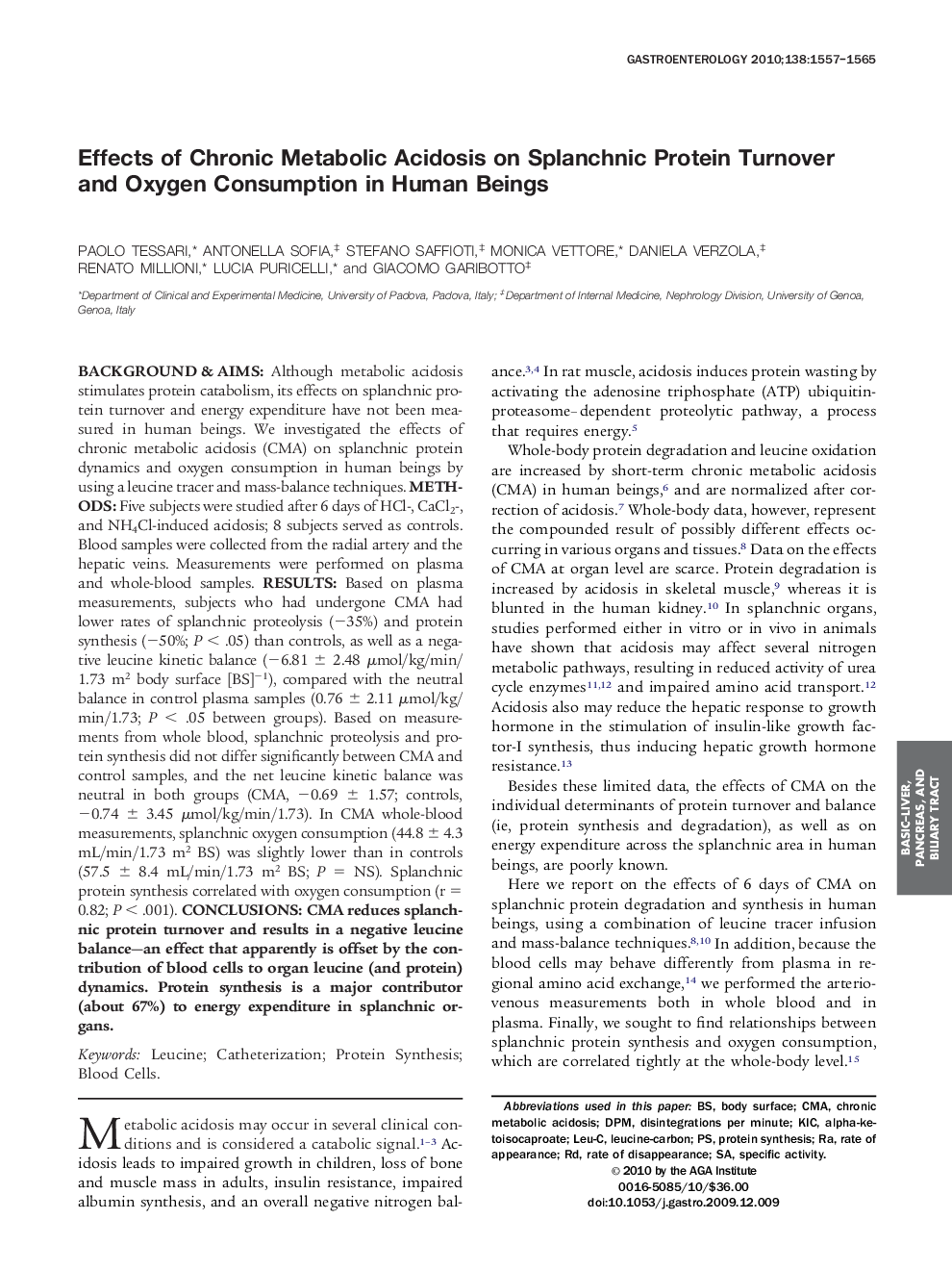| کد مقاله | کد نشریه | سال انتشار | مقاله انگلیسی | نسخه تمام متن |
|---|---|---|---|---|
| 3296547 | 1209870 | 2010 | 9 صفحه PDF | دانلود رایگان |

Background & AimsAlthough metabolic acidosis stimulates protein catabolism, its effects on splanchnic protein turnover and energy expenditure have not been measured in human beings. We investigated the effects of chronic metabolic acidosis (CMA) on splanchnic protein dynamics and oxygen consumption in human beings by using a leucine tracer and mass-balance techniques.MethodsFive subjects were studied after 6 days of HCl-, CaCl2-, and NH4Cl-induced acidosis; 8 subjects served as controls. Blood samples were collected from the radial artery and the hepatic veins. Measurements were performed on plasma and whole-blood samples.ResultsBased on plasma measurements, subjects who had undergone CMA had lower rates of splanchnic proteolysis (−35%) and protein synthesis (−50%; P < .05) than controls, as well as a negative leucine kinetic balance (−6.81 ± 2.48 μmol/kg/min/1.73 m2 body surface [BS]−1), compared with the neutral balance in control plasma samples (0.76 ± 2.11 μmol/kg/min/1.73; P < .05 between groups). Based on measurements from whole blood, splanchnic proteolysis and protein synthesis did not differ significantly between CMA and control samples, and the net leucine kinetic balance was neutral in both groups (CMA, −0.69 ± 1.57; controls, −0.74 ± 3.45 μmol/kg/min/1.73). In CMA whole-blood measurements, splanchnic oxygen consumption (44.8 ± 4.3 mL/min/1.73 m2 BS) was slightly lower than in controls (57.5 ± 8.4 mL/min/1.73 m2 BS; P = NS). Splanchnic protein synthesis correlated with oxygen consumption (r = 0.82; P < .001).ConclusionsCMA reduces splanchnic protein turnover and results in a negative leucine balance—an effect that apparently is offset by the contribution of blood cells to organ leucine (and protein) dynamics. Protein synthesis is a major contributor (about 67%) to energy expenditure in splanchnic organs.
Journal: Gastroenterology - Volume 138, Issue 4, April 2010, Pages 1557–1565